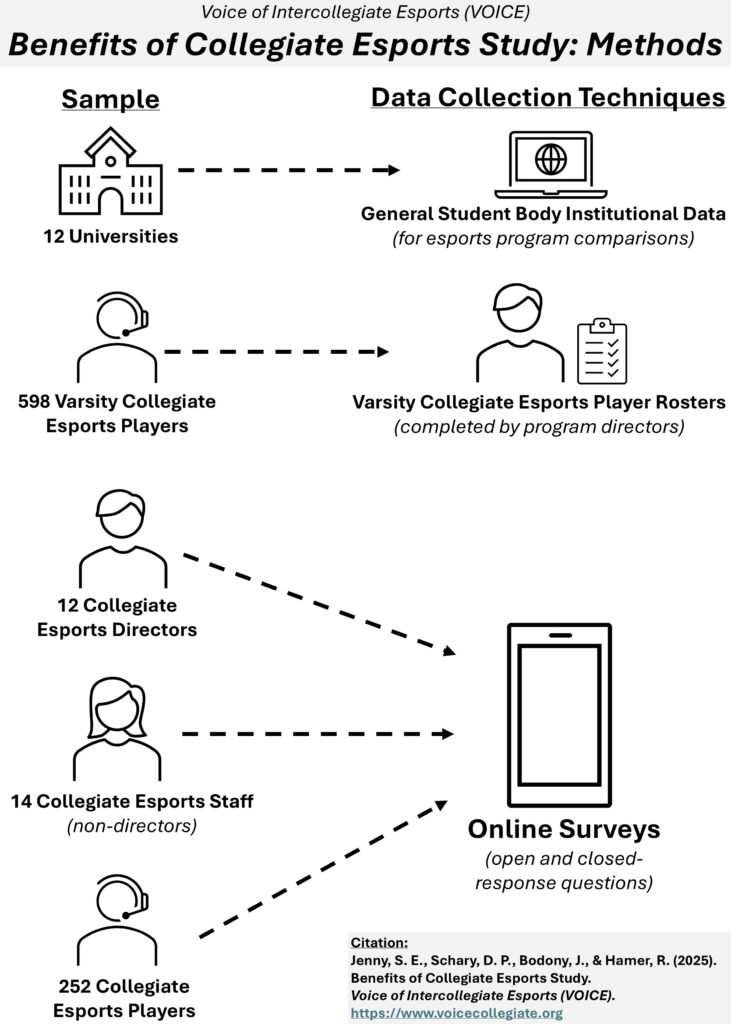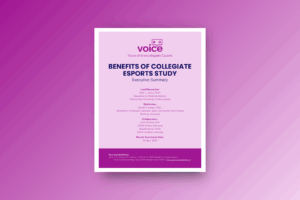
by David P. Schary, Ph.D. and Seth E. Jenny, Ph.D.
The Voice of Intercollegiate Esports (VOICE) released the Benefits of Collegiate Esports Study on 25 August 2025. To our knowledge, this is the largest collegiate (i.e., university) esports study ever conducted. This study looked at the role collegiate esports plays in higher education and on campus life by examining 12 different university programs across the United States. Official records covering nearly 600 student varsity esports players were studied, along with surveys using both open and closed-response questions taken by the collegiate esports program directors, staff, and players. To better understand the students involved in collegiate esports, researchers also compared the esports player and program data with the overall student population at each university. The graphic below summarizes the study’s methods and who was involved in the study.

The study explores who takes part in collegiate (i.e., university) esports, why and how students get involved, and what benefits and challenges these programs create for both students and their institutions, among many other related areas. Importantly, the research highlights both the positives and the limitations of collegiate esports.
This study was funded by VOICE and was conducted by lead researcher Seth E. Jenny, Associate Professor at Slippery Rock University of Pennsylvania, statistician David P. Schary, Professor at Winthrop University, along with VOICE contributors Jesse Bodony (Pace University) and Russ Hamer (Miami University).
The study’s Executive Summary can be found here, which offers a succinct breakdown of the study’s main findings organized by potential benefits of collegiate esports, challenges and considerations in collegiate esports, and additional findings. Additionally, the Full Methodology and Results report can be found here, which offers a 93-page detailed description of how the study was conducted along with all comprehensive results and data analysis.
Ultimately, this study helps uncover the potential benefits of collegiate esports programs, as well as highlight some concerns surrounding collegiate esports, particularly within North America. This research will likely be a foundational study for future collegiate esports investigations. Of note, a comprehensive article explaining and discussing the results of this study will be published in an academic journal. Once available, a link to the paper will be posted on the VOICE website.


